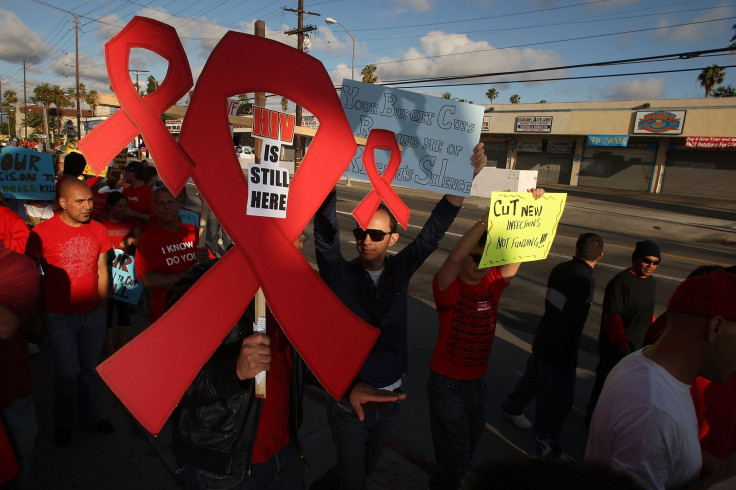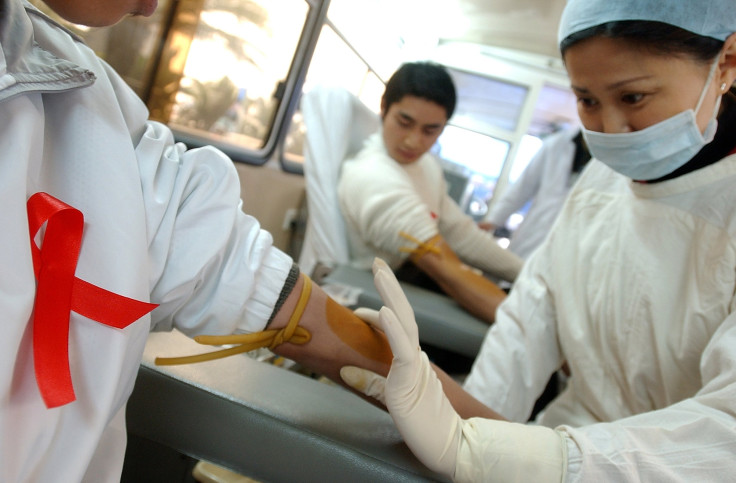HIV Cure Hopes Revived After South African Kid’s Remission, Possible Immunotherapy Links

The fact that a 9-year-old South African has successfully beaten the HIV virus and has been in the remission phase for more than eight years, along with a newfound similarity between cancer cells and AIDS have given people affected with AIDS new hopes of being cured.
But has medical science finally found the answer to curing HIV? Normally, HIV patients need to stay on antiretroviral (ART) drugs for a lifetime to make sure that their illness does not escalate to life-threatening proportions. However, a report BBC, published Monday discussed the possibilities of finding a permanent cure for HIV after it was found that a new branch of immunotherapy drugs known as "checkpoint inhibitors" allow the immune system to continue fighting, resulting in the complete remission of the patients with terminal cancer.
Sharon Lewin, the director of the Doherty Institute in Australia, has started researching the chances the same drugs, which renew the energy of the human immune system to fight cancer cells, might be effective in strengthening the body’s defense against HIV. "The parts of the immune system that recognize HIV are often exhausted T-cells, they express immune checkpoint markers,” Lewin said. "In the laboratory, if you then put those cells in with an immune checkpoint blocker, the T-cells do regain function."

Read: Woman Yells 'I'm HIV-Positive' To Escape Being Raped By Men
However, there is an intrinsic difference between how the human immune system approaches cancer cells as opposed to the threat posed by HIV, making the newfound connection between the two deadly diseases extraneous with regards to finding a complete cure for HIV or to prevent it from developing into AIDS. While a person’s natural immune system is able to detect cells affected by cancer and yet powerless to fight against the same, it fails to recognize latently infected HIV cells completely. Herein lies the primary problem.
Dr Anthony Fauci, the head of the US National Institute of Allergy and Infectious Diseases, said: "We have to be careful we don't assume that things that work in cancer are going to work in HIV."
"HIV is so different, that even though it's worth exploring, I wouldn't want people to think this is going to be equally successful in HIV," he cautioned, according to the BBC report.
Separately for its part, treatment with ART has seemingly found a break through in a rare case of a 9-year-old South African kid going into complete remission after just a year of treatment for HIV, a disease he was born with, giving many affected with the virus the hope that a permanent cure can be possible. The kid, whose name, identity or gender has been withheld, has been HIV-free for about eight and a half years now, the Telegraph reported.
Read: HIV Positive Track Coach Carlos Deangelo Bell Accused Of Sexually Assaulting 7 Boys
However, doctors have advised HIV patients not to base their hopes on an isolated case of the disease being successfully treated. "It's a case that raises more questions than it necessarily answers," said Linda-Gail Bekker, president of the International AIDS Society (IAS).
"It does raise the interesting notion that maybe treatment isn't for life. (But) it's clearly a rare phenomenon," she added.
The kid had taken part in a clinical trial at the age of nine weeks, in which researchers were testing out the effects of antiretroviral drugs on HIV-positive babies in the first few weeks of life. They intended to stop administrating the drugs after a while, observe the extent to which the disease had been brought under control and restart it again.
The doctors stopped giving the child the medicine after 40 weeks and kept the child under strict observation for any signs of a relapse. It was seen that once the HIV virus was suppressed, it did not make a comeback in this particular case.
© Copyright IBTimes 2025. All rights reserved.






















